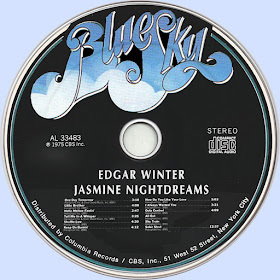David Gates got all the attention but James Griffin stood proudly as his cohort during the early days of Bread. Once Bread crumbled, Gates also had hits but Griffin didn't, despite developing a strong body of work that finally gets anthologized via Hux's 2013 compilation, Just Like Yesterday: The Solo Anthology 1974-77. During these four years, Griffin released just two albums -- 1974's Breakin' Up Is Easy and 1977's eponymous LP -- and both records are here, along with the bonus tracks of "Just Like Yesterday" and "She Knows," the latter coming from a May 1974 performance on the Old Grey Whistle Test.
Compared to Gates, Griffin isn't quite as buttery: his voice is fine-grain sandpaper and he is sometimes happy enough to skirt the boundaries of soft rock, particularly on his 1974 debut. His 1977 album is softer and sweeter, an exemplary specimen of late-'70s SoCal soft rock, where the professionalism is as alluring as the songcraft. Often, Griffin excelled at the veneer, not the structure; his songs aren't memorably melodic but his albums are welcoming and warm, delivering a distinctly '70s soundscape that captures the era while eluding the specificity of its time.
Griffin is appealing: as a frontman, he has a casual touch, something that may have kept him from the charts but is nevertheless charming, as there's an ease to his delivery that accentuates the mellowness of the two albums. Perhaps he could've stood to be a little more forceful -- and the 1977 LP does show more muscle than its predecessor -- but what gave Griffin his identity was his slight ragged, ultimately smooth delivery; he wasn't as seamless as Gates but he followed the same path and found equally interesting detours, all of which are collected on this de facto two-fer.
by Stephen Thomas Erlewine
Tracks
1. Breakin' Up Is Easy (Robb Royer) - 3:52
2. Someday (James Griffin) - 3:54
3. Love You Till The Cows Come Home (James Griffin) - 2:59
4. She Knows - 2:27
5. Father And Son - 4:31
6. You'll Get Along (James Griffin) - 5:12
7. Lifeline - 3:41
8. Goin' Back To Boston - 3:42
9. Only Now - 2:36
10.Love To Light The Way - 2:53
11.Laura Lee (David Paich) - 3:29
12.Hanalei - 4:03
13.Goin' Back To Tennessee (James Griffin) - 3:45
14.Blood From A Stone - 4:20
15.How Do You Say Goodbye (James Griffin) - 2:35
16.Treat Her Right (David Paich) - 3:07
17.That's All I Need (Robb Royer) - 3:44
18.My Love Is Mine (James Griffin) - 3:03
19.I Repent (James Griffin) - 4:57
20.Just Like Yesterday (James Griffin) - 2:28
21.She Knows - 2:57
All songs by James Griffin, Robb Royer except where noted
Tracks 1-10 from "Breakin' Up Is Easy" 1974
Tracks 11-19 from "James Griffin" 1977
Bonus Tracks 20,21
Musicians
*James Griffin - Vocals, Bass, Drums, Guitar, Piano
*David Gates - Bass, Guitar
*Larry Knechtel - ARP Synthesizer, Bass, Guitar, Piano
*Mike Botts - Drums
*Jim Horn - Woodwind, Horn
With
(Tracks 1-10)
*Leland Sklar - Bass
*Robb Royer - Guitar, Piano
*Russ Kunkel - Drums
*Jeff Baxter - Steel Guitar
*Curtis Amy - Horn
*John Miles - Horn
*Dean Parks - Guitar
(Tracks 11-19)
*Barry Byrdton - Guitar
*Carol Carmichael - Vocals
*Dave Bundameyer - Bass
*Andre Love - Horn
*David Patch - Piano
*Denny Lardin - Guitar
*Ed Logan - Horn
*Jack Hale - Horn
*James Mitchell - Horn
*Jim Gordon - Drums
*Joe LeManno - Bass
*Wayne Jackson - Horn
Related Act































